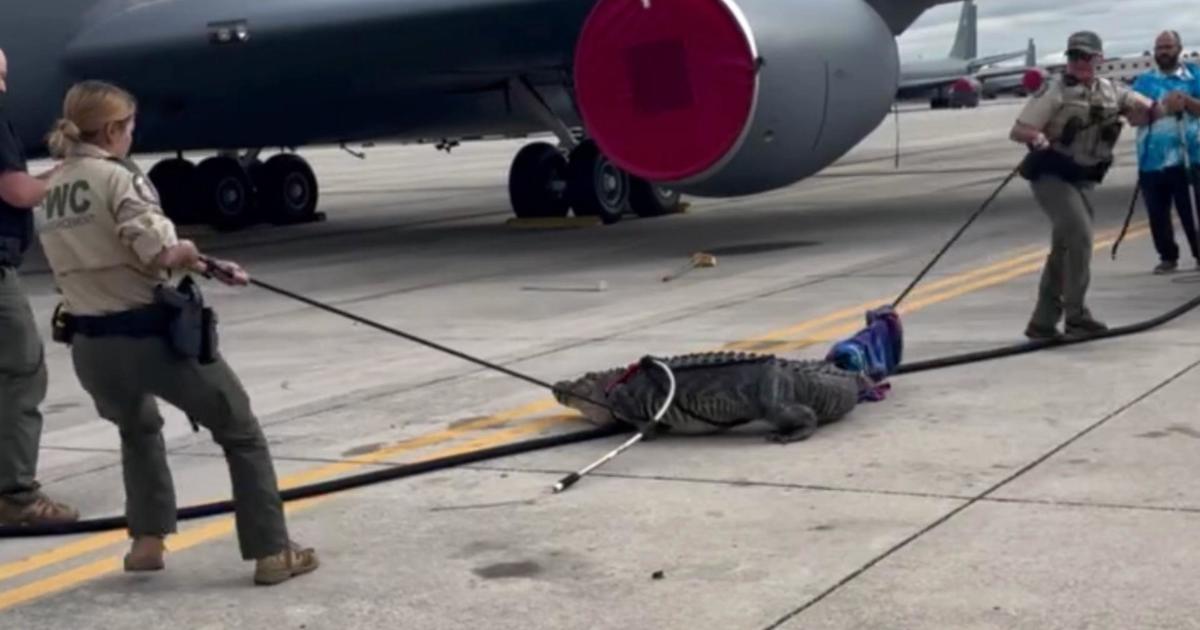SeaWorld trainers will no longer ride dolphins at theme parks
SeaWorld Entertainment is pulling the plug on its longstanding practice of trainers riding on dolphins in shows at its theme parks. The move comes after a nearly year-long campaign by animal rights activists to convince the company to prohibit the stunt, which includes riding on the backs of dolphins and standing on their faces.
The move away from such dolphin show theatrics was disclosed in a letter this month from a SeaWorld lawyer to the U.S. Securities and Exchange Commission. It addressed a shareholder proposal made in December by People for the Ethical Treatment of Animals calling on the company to end what it described as "circus-style" practices. PETA owned 163 shares of SeaWorld stock as of December.
SeaWorld Entertainment stated that it "no longer demonstrates 'surfing' [on dolphins] at any of its locations, and plans to phase out the demonstration of standing on rostrums within the next few months, despite its belief that neither of these behaviors are harmful to the animals in any way."
The company also declared that just one of SeaWorld's 12 parks — SeaWorld San Diego — continues to let trainers to stand on the bottlenose dolphins' snouts.
PETA cheered SeaWorld's change of policy.
"Victory! SeaWorld has stopped treating dolphins like surfboards and will soon stop making trainers stand on their faces in demeaning circus-style shows," the group announced on its site on Wednesday.
SeaWorld, however, rejected PETA's assertion that the activist group had anything to do with its decision.
"SeaWorld is continually evolving its animal presentations to create the best experience for both guests and our animals," the company said in a statement. "As an accredited zoological facility, our leadership solely determines the content and format of our presentations and is not influenced in any way by the actions of ill-informed activists, who are seemingly more interested in their profile and fund raising than they are the welfare of animals."
The company for years has faced a public backlash in the wake of the 2013 documentary "Blackfish," which cast a negative light on SeaWorld's treatment of its killer whales. The company halted its controversial orca show at its San Diego park in 2017.
CEO Joel Manby unexpectedly departed in 2018 after starting SeaWorld's pivot away from live animal shows amid declining park attendance. Manby's replacement, Gustavo "Gus" Antorcha, stepped down after less than a year, and in November was replaced by Sergio Rivera, formerly president and chief executive of ILG's timeshare-resort unit.
SeaWorld returned to profitability in 2018 after three years of losses. Both attendance and revenue have picked up, but still remain below the numbers seen in 2013.
SeaWorld blamed a spike in the number of bad weather days, including some from Hurricane Dorian, for a decline in attendance in its third quarter from the year-earlier period. Yet the 8.1 million customers in its third quarter were up from 6.5 million in its second quarter.
The company's stock price has been on a roller coaster in recent years, falling as low as about $11 a share in the fall of 2017 and recently climbing to about $35 a share. That's just a few dollars shy of its $39 peak in May 2013.



